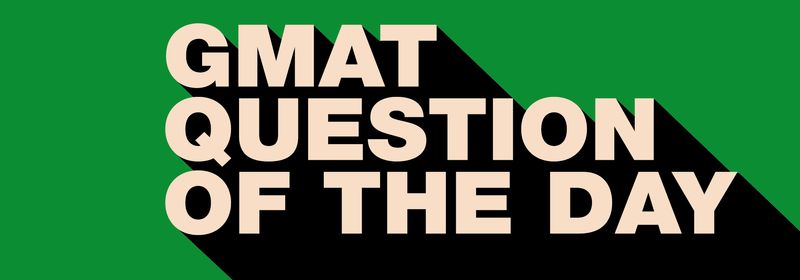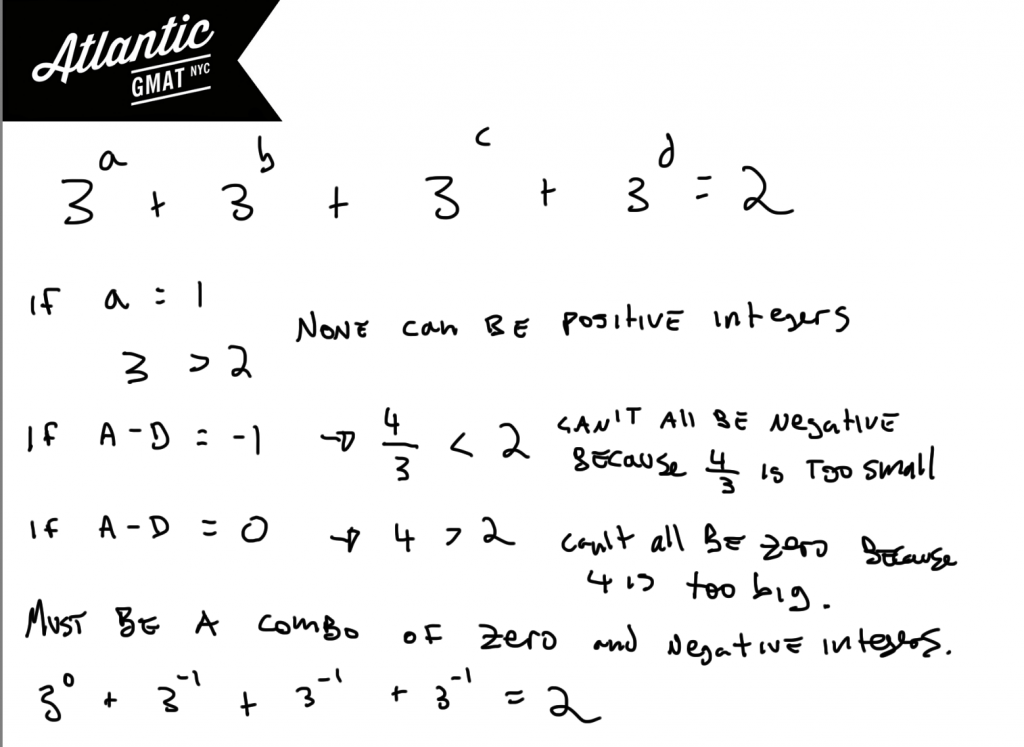GMAT Question of the Day – Problem Solving – Exponents
3^a + 3^b + 3^c + 3^d = 2
If a, b, c, and d are integers then what is the value of a + b + c + d?
A. -3
B. -2
C. -1
D. 1
E. 2
[spoiler]A.[/spoiler]
GMAT Question of the Day Solution
If you try algebra on this GMAT question of the day you’ll have some issues. This isn’t solvable in a conventional way. This is a “perfect fit” type of question. What’s that??? The GMAT will set up a scenario which isn’t solvable algebraically but for which there is a unique solution. Whoa!!??? Yep. So how do you get there? ORGANIZATION and a little imagination. Consider the limitations of the system presented to you. Are there any special numbers? Do the values have to be integers? What are the implications of that? Rest assured that the question is generally simpler than you think it is.
In this case we do have integer values for a, b, c, and d. That limits the possibilities by a ton. Now notice that these four powers of three must equal 2. Hmmm. That should make you scratch your head. How is that possible? Well, consider the values that you can use. What happens if you use positive integers? Negative integers? Zero (yes, zero is also an integer. Don’t forget it!)? Positive integers won’t work because even if one of the three’s is raised to the 1st power you’ll be above 2 (none of the other numbers can possibly be negative because none of the bases are negative). Making all the variables zero will put you squarely at 3. Still too big. Using the biggest negative integer (-1) will get you to 4/3. Too small and a fraction. This guarantees that we’ll need a combination of zero and negative integers. If three of the variables equal -1 and one of them equals zero the result will sum to 2.
Another way to look at this is to think: if the sum of 4 numbers (none of which can be zero or negative) is 2 then at least 3 of the numbers must be less than 1. Because you need to end up with an integer the fractions must sum to an integer. The only one that will do that in this case is 1/3.
Additional GMAT Puzzle Question Practice
Here’s a prime/powers of 10 puzzle from the GMAT Official Guide: The product of all the primes numbers less than 20 is closest to which of the following powers of 10?

